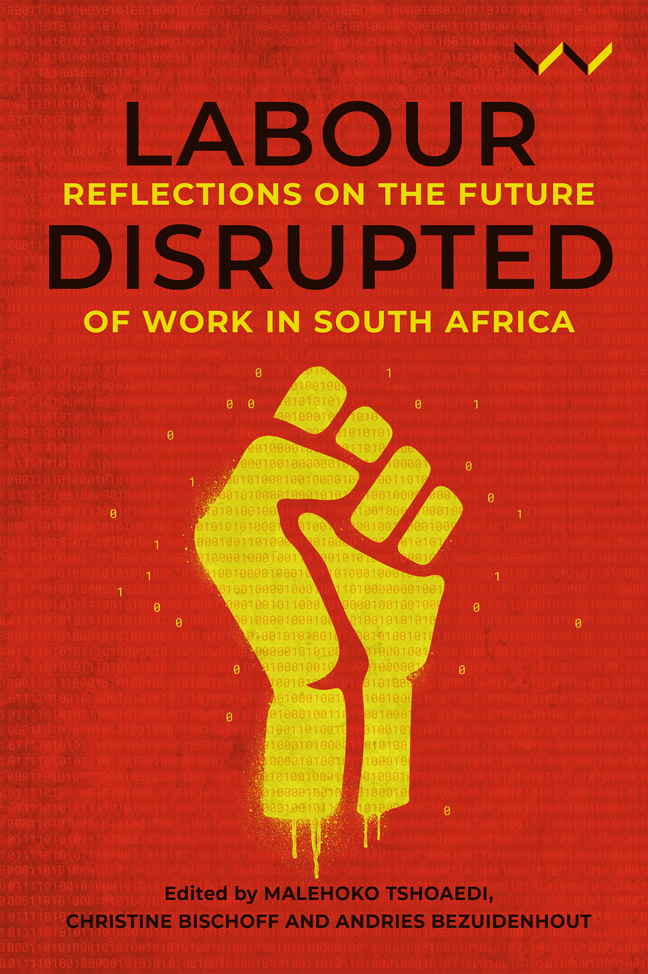Book contents
- Frontmatter
- Contents
- Figures and Tables
- Acknowledgement
- Acronyms
- Introduction: Disruptions and New Directions in South African Labour Studies
- Chapter 1 Fragmented Labour Movement, Fragmented Labour Studies: New Directions for Research and Theory
- PART I Changing Solidarities
- PART II Technology and Work
- PART III New Forms of Organising
- PART IV Labour and Lockdown
- Conclusion: Questions, Answers and New Directions
- Contributors
- Index
Chapter 11 - Hegemony, Counter-hegemony and the Role of Social Movements
Published online by Cambridge University Press: 01 March 2024
- Frontmatter
- Contents
- Figures and Tables
- Acknowledgement
- Acronyms
- Introduction: Disruptions and New Directions in South African Labour Studies
- Chapter 1 Fragmented Labour Movement, Fragmented Labour Studies: New Directions for Research and Theory
- PART I Changing Solidarities
- PART II Technology and Work
- PART III New Forms of Organising
- PART IV Labour and Lockdown
- Conclusion: Questions, Answers and New Directions
- Contributors
- Index
Summary
INTRODUCTION
Growing desperation in South African society and evidence of state failure in many sectors would seem to strongly indicate the need for a counter-hegemonic project. But who will lead such a project, and what role will social movements play? In May 2018, a few months before the ‘Future of Labour’ conference at the University of the Witwatersrand, Trevor Ngwane launched his book Urban Revolt at Nelson Mandela University (Ngwane, Ness and Sinwell 2017). During his presentation at the launch, Ngwane reflected on how urban social movements ‘challenge the hegemony of global capital’. This provoked reflection on grassroots social movements and their relationship to the labour movement in South Africa, as well as the relationship of social and labour movements to the formal politics of representation and policy-making.
Since the conference, there have been dramatic developments that have brought inequalities and injustices in South African society (and across the globe) to the fore. Most recently the Covid-19 pandemic has resulted in new civil society coalitions that have responded to these inequalities in various ways. The climate crisis has also posed fundamental challenges to social movements in South Africa, including the labour movement. The crisis of corruption within the ruling African National Congress (ANC) has forced the labour movement to reassess its alliance with the ruling party.
The main question posed in this chapter is thus to ask whether, in the years since the 2014 trade unions and democracy survey (see Bezuidenhout and Tshoaedi 2017), a new and unified social movement led by the working class has emerged. In answering this question, new political alignments since the ‘Numsa moment’ are explored, including the emergence of the United Front and then the Socialist Revolutionary Workers Party (SRWP). The question is posed whether the ANC is still hegemonic and, if so, has a counter-hegemonic movement emerged? And if it has, how does the labour movement relate to this counter-hegemonic movement?
Additional questions posed are: Is there a disjuncture between the forms of organisation and mobilisation of the organised working class, employed in the formal economy (the ‘labour movement’) and those of the precariat (the masses of unemployed, and those in the informal economy)? Do the latter constitute a working-class movement or a social movement? Are they a movement of any kind?
- Type
- Chapter
- Information
- Labour DisruptedReflections on the Future of Work in South Africa, pp. 229 - 249Publisher: Wits University PressPrint publication year: 2023



